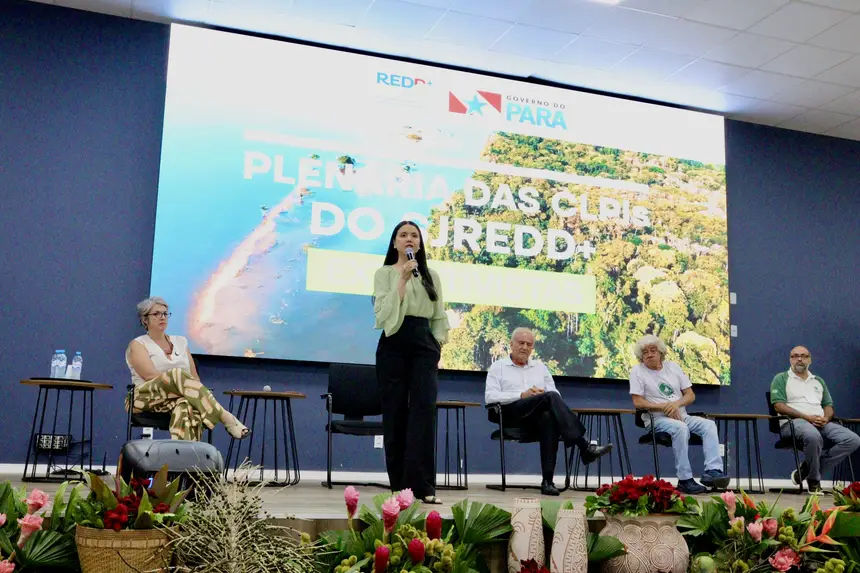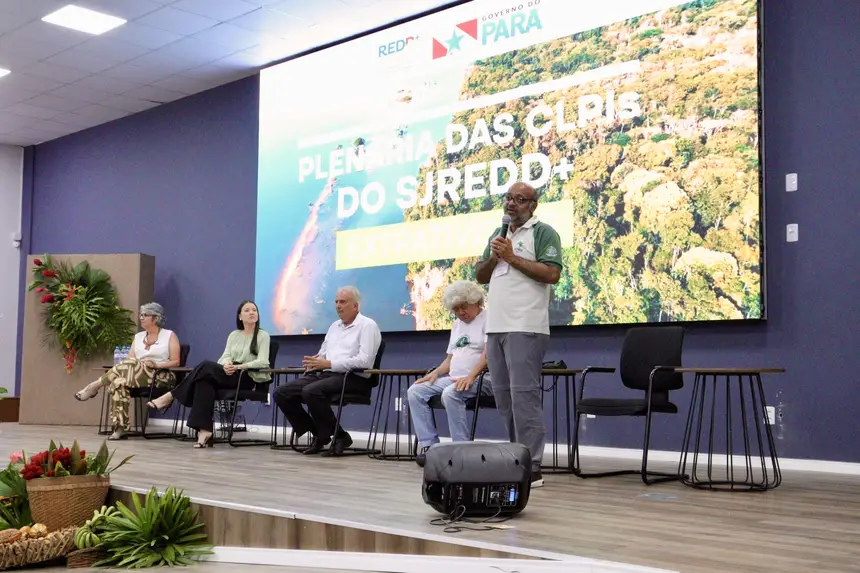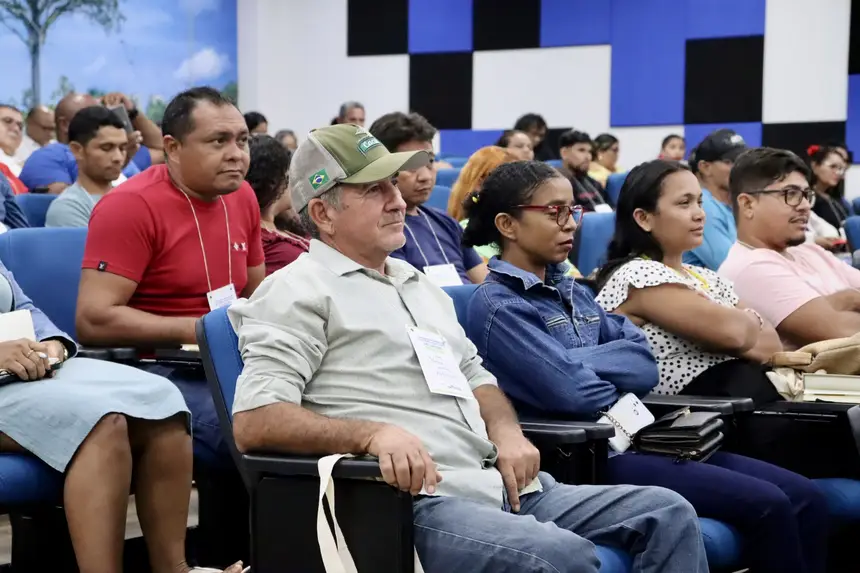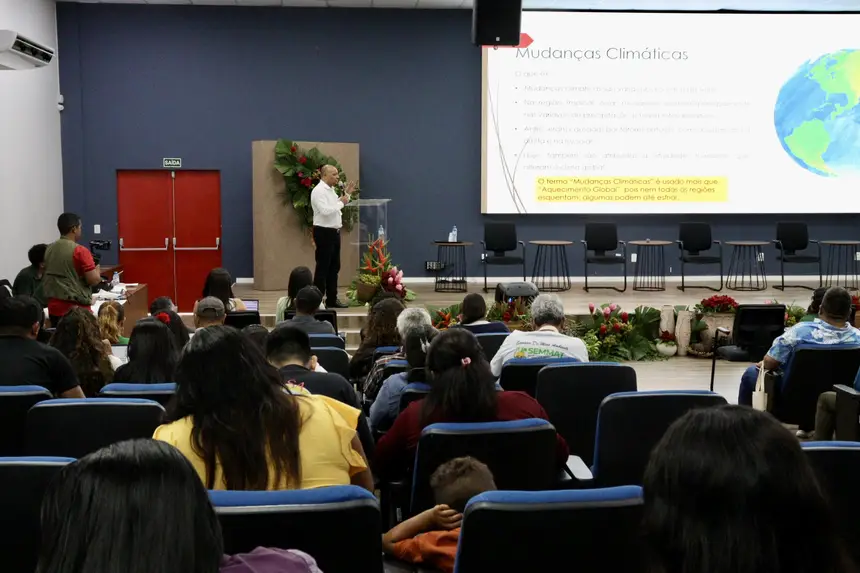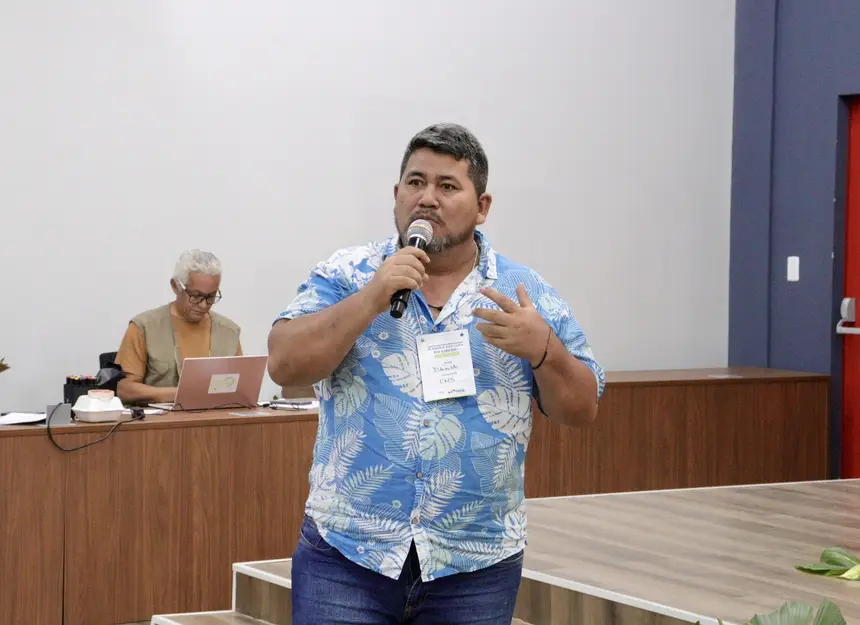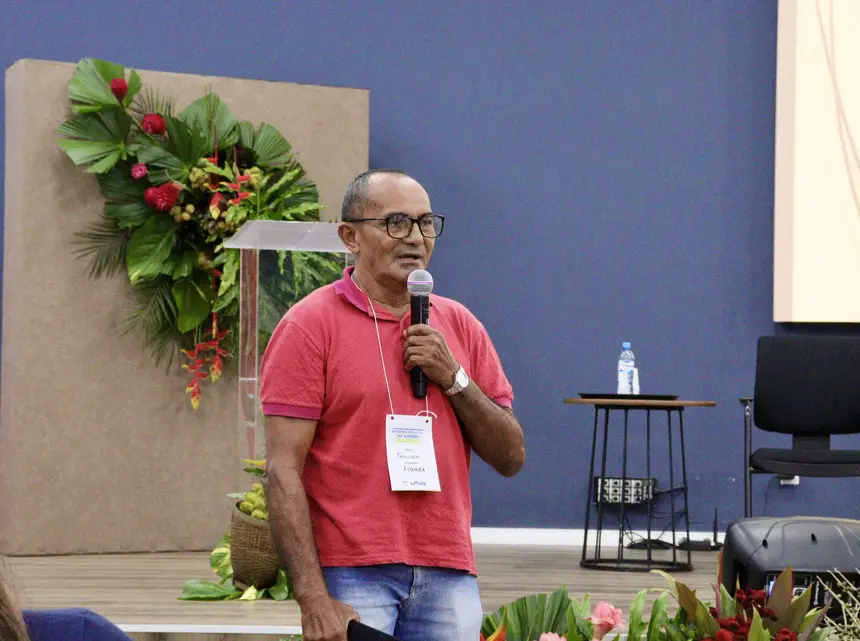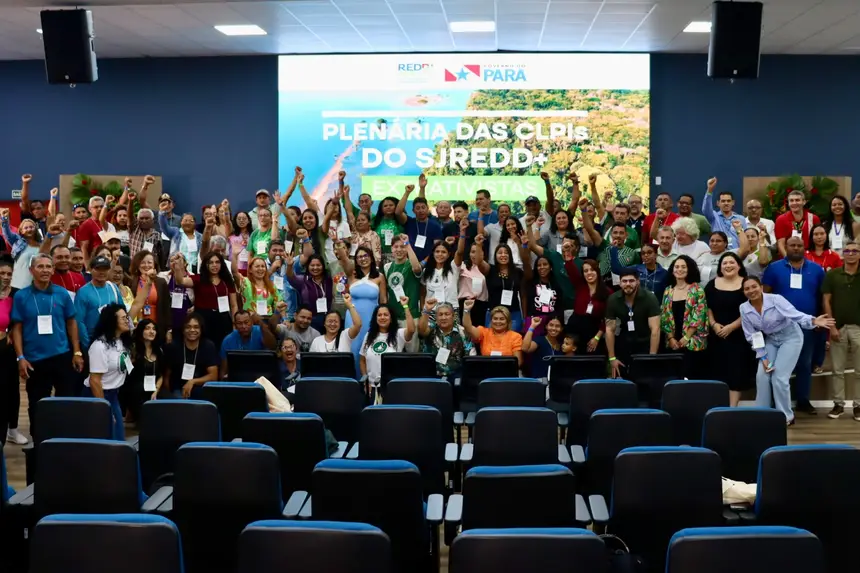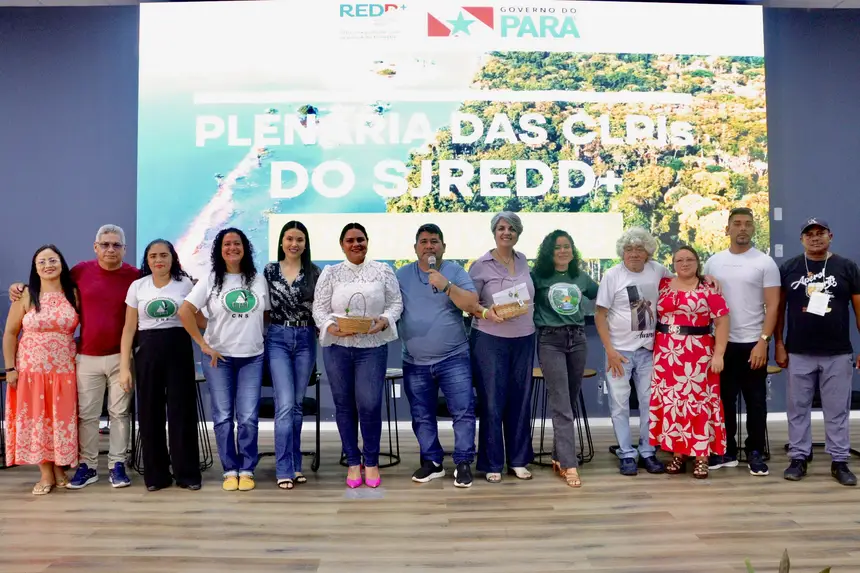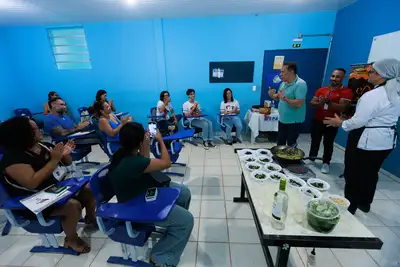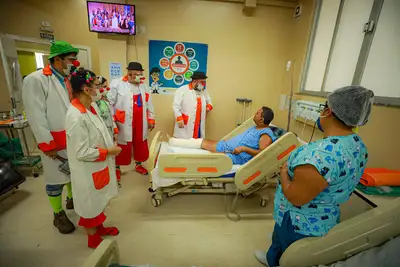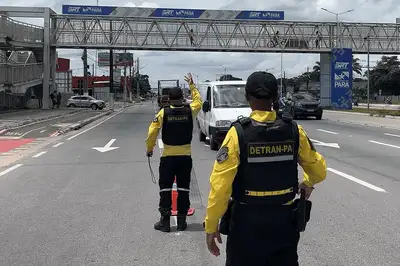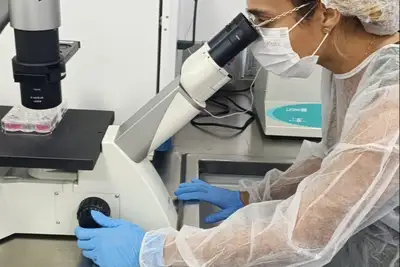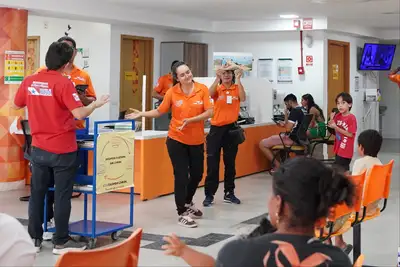Extractivists strengthen the construction of the REDD+ Jurisdictional System in Pará
Traditional communities help define pathways for a carbon policy with socio-environmental justice in the state
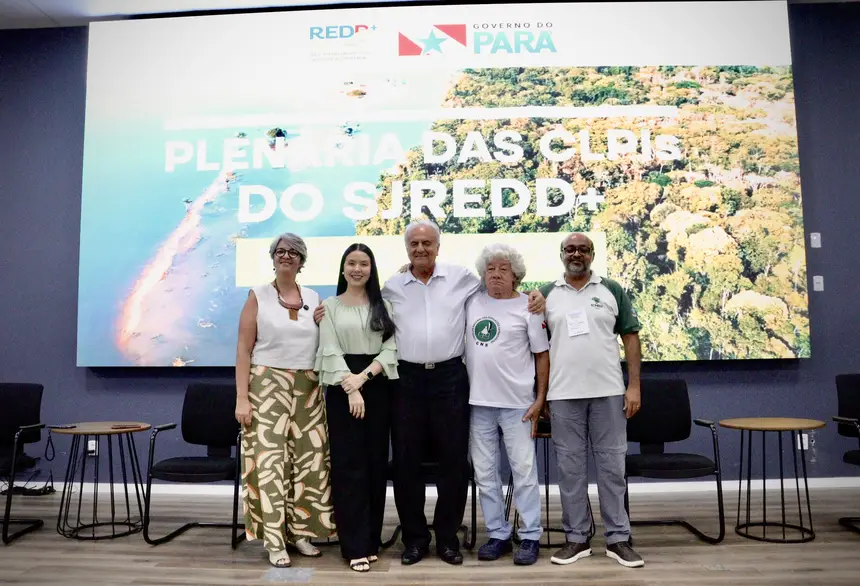
The extractivists of Pará are actively contributing to the State Government in the formulation of a new environmental policy of historic reach. The Secretary of Environment, Climate and Sustainability (Semas) held, on October 30 and 31, in Belém, the last meeting of the extractivist segment aimed at the participatory construction of the REDD+ Jurisdictional System (SJREDD+). The public policy seeks to ensure that the results obtained from reducing deforestation finance both the continuity of this process and the maintenance of the ways of life of the populations that depend on the forest.
REDD+ (Reducing Emissions from Deforestation and Forest Degradation) is an international standard that defines strict rules for quantification, monitoring, reporting, and verification (MRV) of greenhouse gas (GHG) reductions. In Pará, the system has been collaboratively built by state secretariats, civil society entities, and the extractivist communities themselves, with the aim of generating carbon credits of high social and environmental integrity.
“When we concluded this stage with the extractivist segment, we were able to incorporate their main demands and strengthen points already foreseen in the state policy,” highlighted Renata Nobre, Secretary of Water and Climate Management at Semas. “The system is improved with each new stage, and this one, in particular, brought valuable lessons about dialogue and co-responsibility.”
Consultations and dialogue with communities
Since the beginning of the process, 14 Free, Prior and Informed Consultations (CLPIs) have been held, with seven dedicated to the extractivist segment. The consultations followed the guidelines of ILO Convention 169 and Resolution No. 19/2025 of CONAREDD, respecting the autonomy and timing of each community. More than 500 communities participated in discussions in different regions of the State.
“Our expectation with SISREDD+ is to build a solid public policy that strengthens sustainable development and values those who protect the forest,” stated Atanagildo Matos (Gatão), coordinator of the National Council of Extractivist Populations (CNS). “We appreciate the government's willingness to listen and engage with us at each stage.”
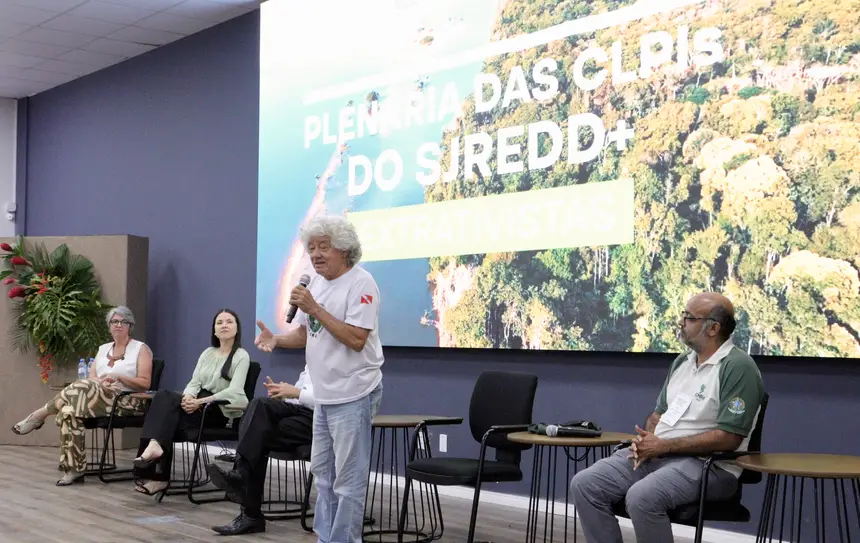
The contributions collected from the extractivists will serve as a basis for dialogue with other social segments, such as quilombola communities, indigenous peoples, and family farmers. “The process is alive and collaborative. After COP, we will resume the CLPIs with the other segments, bringing with us the lessons learned so far,” informed Secretary Renata Nobre.
At the end of the consultations, the final versions of the instruments that make up the SISREDD+ will be consolidated: the draft law, the benefit-sharing proposal, and the subprograms that will receive resources to enhance public policies. “The legal text provides for mechanisms for oversight, monitoring, and socio-environmental safeguards, ensuring transparency and equity throughout the system,” concluded the manager.
The advancement of SISREDD+ occurs in a context of significant environmental results in Pará. According to data from the Prodes/Inpe Project, the State recorded consecutive reductions of 21% in deforestation rates in 2022 and 2023, along with an even greater decrease of 27% in 2024. The numbers reflect the strengthening of integrated command and control actions, land use planning, and incentives for sustainable productive activities.
Text: Vitor Hugo Ribeiro – Ascom Semas


